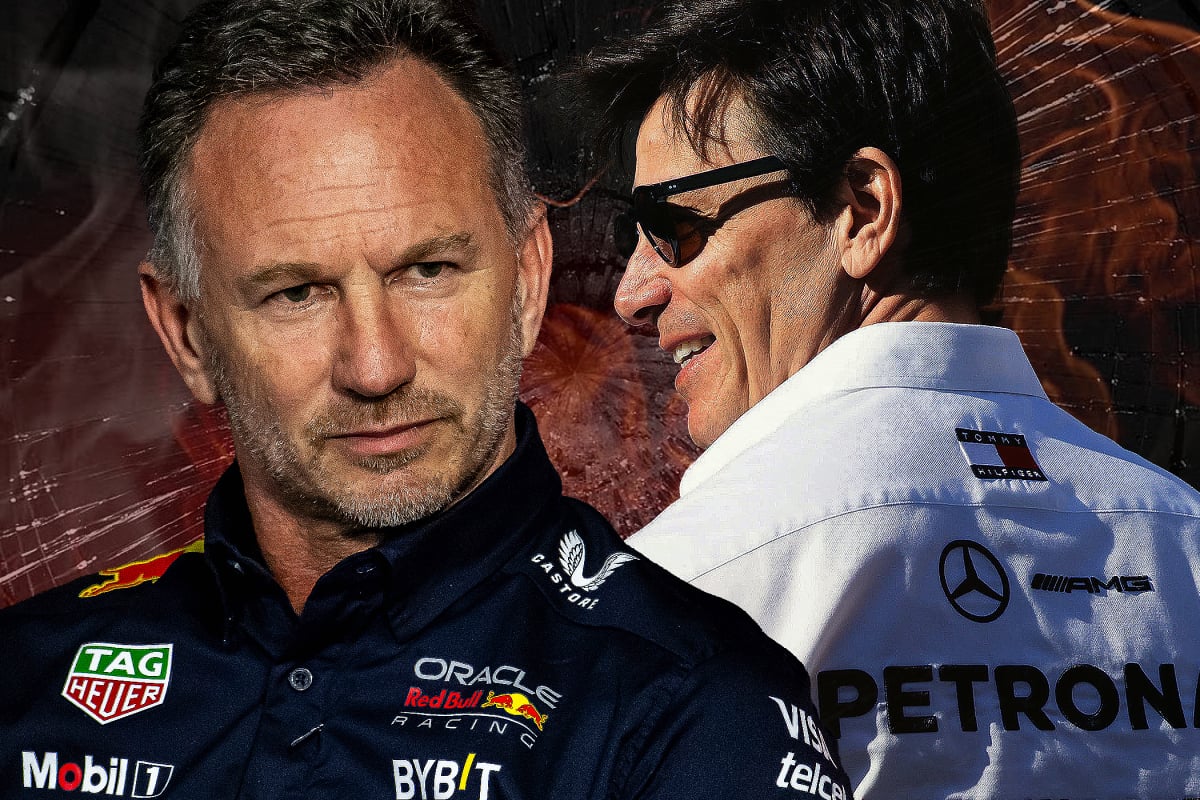Toto Wolff takes over Christian Horner F1 role afterR…read more
In a significant development within the Formula 1 world, Toto Wolff, the current Team Principal and CEO of the Mercedes-AMG Petronas Formula One Team, has now officially become the longest-serving team principal in the sport. This milestone comes after the surprising and high-profile exit of Christian Horner from his leadership role at Red Bull Racing.
For years, Christian Horner had been a dominant and enduring figure in Formula 1, heading Red Bull Racing since its inception into the sport in 2005. Under his leadership, Red Bull evolved from a new entrant to a powerhouse, winning multiple Constructors’ and Drivers’ Championships, most notably with Sebastian Vettel between 2010 and 2013 and with Max Verstappen more recently. Horner’s tenure was marked by strategic brilliance, sharp decision-making, and a deep understanding of both the competitive and commercial sides of Formula 1.
However, Horner’s reign came to an unexpected end following internal pressures, controversies, and shifting dynamics within Red Bull’s management structure. His departure marks the close of an era that saw Red Bull transform into one of the most successful and commercially viable teams on the grid. Though the exact reasons for his exit remain partially confidential, reports suggest that disagreements with senior Red Bull stakeholders, combined with evolving team priorities, played a role.
With Horner now out of the picture, Toto Wolff assumes the mantle of the longest-serving active team principal in the sport. Wolff joined Mercedes in 2013, a pivotal time when the team was laying the groundwork for its future dominance. Since his arrival, Mercedes has enjoyed an unprecedented period of success, claiming a record-breaking string of Constructors’ and Drivers’ Championships between 2014 and 2020. The combination of Wolff’s leadership, technical expertise, and keen business acumen has been instrumental in keeping Mercedes competitive in an ever-evolving F1 landscape.
Unlike Horner, whose background was more rooted in team management from Red Bull’s early days, Wolff brought a diverse portfolio of experiences to Mercedes, including financial investment, motorsport participation as a driver, and team ownership in other racing categories. This breadth of experience helped him foster a robust organizational culture at Mercedes, emphasizing collaboration, innovation, and strategic foresight.
Wolff’s leadership style is often contrasted with Horner’s. While Horner was known for his sharp, sometimes confrontational, and outspoken approach in media interactions and paddock politics, Wolff has typically portrayed a more calculated, composed, and diplomatic front, though not without his own firm stances on key issues. This dynamic between the two added an additional layer of intrigue to the Mercedes-Red Bull rivalry, especially in recent seasons where both teams fiercely contested for supremacy.
The shift in leadership dynamics raises questions about the future of Red Bull Racing. The team, still a formidable force, will now have to adapt to new leadership, and many in the paddock are watching closely to see how this transition affects its competitive edge. At the same time, Wolff’s continued presence provides Mercedes with a steady hand as they seek to reclaim their dominant position following Red Bull’s recent championship streak led by Max Verstappen.
Moreover, Wolff’s longevity now stands as a testament to his effectiveness not just in sustaining performance on the track, but in navigating the complex political, commercial, and technical challenges that define modern Formula 1. As the sport evolves with new regulations, sustainability initiatives, and expanding global markets, Wolff’s role will remain critical both for Mercedes and the broader F1 ecosystem.
In conclusion, the exit of Christian Horner marks a pivotal moment in Formula 1’s leadership landscape. Toto Wolff’s emergence as the longest-serving team principal symbolizes not just personal endurance but also the evolving nature of team management at the highest level of motorsport. Fans and stakeholders alike will be keen to see how these changes shape the ongoing battles both on and off the track.




